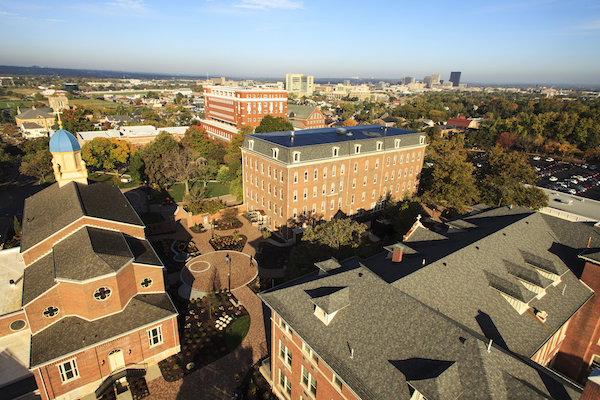President's Blog: From the Heart

Hate Has No Home Here
By Eric F. Spina
Dear Students, Faculty, and Staff,
You may have heard that a Ku Klux Klan-affiliated group from Southern Indiana has been granted a permit to hold a rally in Dayton’s Courthouse Square on May 25. While freedom of speech and assembly are cornerstones of our democracy, the University of Dayton is fiercely opposed to the message that this group and its affiliated groups spread and will speak up and act now and in the months to come. Historically, the KKK has directed its hatred primarily against African Americans, as well as Jews, Catholics, immigrants of many ethnicities and nationalities, and the LGBTQ+ community.
The University statement below encourages us as a community to counter the group’s message of hate and violent intolerance with one of love and peaceful inclusion.
Shelley Inglis, executive director of the Human Rights Center; Daria-Yvonne Graham, associate dean of students and executive director of the Office of Multicultural Affairs; and Crystal Sullivan, executive director of Campus Ministry, will bring together a group of students, faculty, and staff to develop ways the campus community can peacefully make our voices heard. In addition, the University’s leadership, the Division of Student Development, and the Office of Public Safety will ensure that our students, faculty, and staff feel — and are — safe and supported during this period.
We encourage UD students who are concerned and feel threatened or anxious about the assembly of this hate group and what it portends to reach out for support from the Counseling Center, Campus Ministry, the Housing and Residence Life staff, Office of Multicultural Affairs, and your professors. Faculty and staff should contact the Employee Assistance Program, Human Resources, the Office of Diversity and Inclusion, the Equity Compliance Office, or other resources with which they feel comfortable.
As we continue to fight racism and hatred, I also invite you to attend an already planned listening session hosted by the Archdiocese of Cincinnati to address issues of racism and racial injustice. It will take place 3-5 p.m. on Friday, March 8, at Daniel J. Curran Place in the Meyer room. Attendees are asked to register by March 4 by email. The full text of the bishops’ pastoral letter and accompanying resources are available here.
May God’s grace be with us as we walk together on this long journey to eliminate racial and other forms of hatred and injustice.
Blessings,
Eric F. Spina
President
University of Dayton Statement
Hate and bigotry have no place in our community, our campus, or our hearts. As a Catholic, Marianist university, we strive to respect the dignity of all people and act in the face of injustice. We recognize that the legacy of racial injustice and its continuing impact in our society demand from us heightened attention to this mission.
We are called to speak out. The U.S. Conference of Catholic Bishops 2018 pastoral letter on racism, “Open Wide Our Hearts: The Enduring Call to Love,” guides our response: “Too often,” the bishops write, “racism comes in the form of the sin of omission, when individuals, communities, and even churches remain silent and fail to act against racial injustice when it is encountered.”
We are also called to act. The University of Dayton will create opportunities for dialogue, prayer, and reflection on campus. We will partner and stand in solidarity with community groups to develop thoughtful, non-violent, proactive measures to demonstrate our resolve that hate has no home here.
